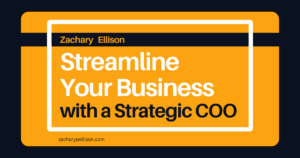Cost-Effective Marketing Strategies That Work

Marketing is an essential aspect of any business, but it can often be costly. Many small businesses operate with limited budgets, making it challenging to invest in traditional marketing strategies.
However, there are cost-effective marketing solutions that can help businesses achieve their goals without breaking the bank.
In this blog, we will explore various strategies that can help businesses effectively market their products or services on a budget.
From online marketing to traditional methods, there are plenty of options available for budget-conscious business owners.
Let’s delve into these strategies and discover how they can benefit small businesses seeking to maximize their marketing efforts.
Exploring Cost-Effective Marketing Solutions
Marketing strategies come in all shapes and sizes, but not all of them are budget-friendly, especially for small businesses operating on limited resources.
However, by embracing cost-effective marketing solutions, businesses can achieve significant results without straining their budgets.
These strategies are designed to provide maximum impact at minimum cost, making them ideal for small businesses looking to make the most of their marketing efforts.
By understanding the importance of budget-conscious marketing and shifting towards low-cost strategies, businesses can thrive in today’s competitive market landscape.
Understanding the Importance of Budget Conscious Marketing
Recognizing the significance of cost-effective marketing strategies is crucial for small businesses.
With limited financial resources, it is essential to leverage marketing efforts to achieve optimal results. Budget-conscious marketing allows small businesses to implement strategies that are financially sustainable, minimizing the risk of overspending.
By focusing on strategies that offer maximum impact at minimal cost, businesses can stretch their marketing budget further, reaching a wider audience and increasing brand visibility.
Implementing marketing strategies that are budget-friendly is particularly important for small businesses as they often face resource constraints.
By choosing marketing solutions that align with their limited budget, businesses can level the playing field and compete with larger competitors.
These strategies need not compromise on effectiveness but ensure that every marketing dollar is utilized strategically.
By capitalizing on budget-conscious marketing tactics, small businesses can achieve business growth without burning a hole in their pockets.
These strategies enable businesses to make the most of their marketing budget, driving customer engagement, brand awareness, and ultimately, sales.
Shifting Towards Low-Cost Marketing Strategies
To shift towards low-cost marketing strategies, small businesses must adopt approaches that yield substantial results at low costs.
This requires a shift in mindset, focusing on marketing methods that require minimal financial resources.
By prioritizing budget consciousness, small businesses can streamline their marketing efforts, ensuring that every dollar spent delivers maximum returns.
One effective low-cost marketing strategy is building an effective online presence. In today’s digital age, online marketing offers a cost-effective way to reach potential customers on a global scale.
By utilizing social media platforms, creating a professional website, and producing engaging content, businesses can establish a strong online presence without breaking the bank.
Social media platforms, such as Facebook, Instagram, and Twitter, provide an effective way to connect with target audiences, enhance brand awareness, and promote products or services.
By leveraging social media marketing, small businesses can engage with potential customers, build brand loyalty, and drive website traffic.
Social media marketing offers a cost-effective way to target specific audiences, making it an essential tool for small business marketing strategies.
In addition to social media, having a professional website is crucial in today’s digital landscape.
A business website serves as the online face of a brand, representing its identity and offerings.
By investing in a user-friendly website, small businesses can effectively market their products or services, attract potential customers, and establish trust and credibility.
A well-designed website with valuable content and optimized landing pages can significantly impact a business’s online presence, boosting brand visibility and driving customer engagement.
Creating engaging content is another low-cost marketing strategy that can establish trust, foster customer loyalty, and position a business as a thought leader in its industry.
By producing valuable content that resonates with the target audience, small businesses can convey their expertise, educate customers, and ultimately, drive sales.
Content marketing is a long-term investment that, when done right, can yield significant returns without requiring a substantial budget.
Building an Effective Online Presence

In today’s digital age, building an effective online presence is crucial for businesses of all sizes. A strong online presence extends a business’s reach, enhances brand awareness, and builds customer engagement.
By leveraging digital marketing strategies, small businesses can effectively market their products or services online, reaching customers across different platforms.
From social media marketing to email marketing, there are various tactics that can help small businesses establish an online presence without breaking the bank.
Utilizing Social Media Platforms for Business
Social media platforms provide small businesses with a cost-effective way to connect with potential customers, promote their brand, and drive engagement.
With millions of active users on platforms such as Facebook, Instagram, and Twitter, social media marketing offers a vast audience base that can be targeted based on specific demographics and interests.
By utilizing social media platforms, small businesses can engage with their target audience, respond to customer inquiries, and build brand loyalty.
Through regular, engaging posts, businesses can nurture relationships with customers, encouraging them to become brand advocates and refer new customers.
Additionally, social media platforms offer advertising options that allow businesses to target specific customer segments, further enhancing the impact of their marketing efforts.
When using social media platforms for business, it is essential to create a consistent brand presence and share content that resonates with the target audience.
By understanding the preferences and needs of their customers, small businesses can tailor their social media content to provide value, attract attention, and drive engagement.
Importance of a Professional Website in Marketing
In addition to social media marketing, having a professional website is crucial for small businesses looking to establish their online presence.
A well-designed website serves as the online face of a business, representing its brand identity, values, and offerings.
It provides customers with information about products or services, contact details, and the opportunity to make purchases or inquiries.
Having a professional website can significantly enhance a small business’s credibility, trustworthiness, and brand awareness.
It allows potential customers to learn more about the business, making informed decisions about their purchase or engagement.
Optimizing landing pages on the website further improves marketing efforts by directing potential customers to specific actions, such as making a purchase, signing up for a newsletter, or contacting the business.
A well-designed landing page can effectively convert website visitors into valuable leads or customers, maximizing the impact of marketing efforts.
Creating Engaging Content to Establish Trust
Content marketing is a powerful tool that allows small businesses to establish trust, credibility, and thought leadership within their industry.
By creating valuable, engaging content, businesses can educate potential customers, answer their questions, and provide solutions to their problems.
Content marketing strategies such as blog posts, articles, videos, and podcasts can showcase a business’s expertise, attracting customers and positioning the business as a trusted source of information.
When creating content, small businesses should focus on addressing their target audience’s pain points, providing valuable insights, and offering actionable advice.
By consistently producing high-quality content, businesses can build a loyal following, establish themselves as thought leaders, and ultimately, drive customer engagement and sales.
Email Marketing: A Powerful Tool
 Email marketing remains one of the most effective marketing tactics, allowing businesses to reach potential customers directly and on a personal level.
Email marketing remains one of the most effective marketing tactics, allowing businesses to reach potential customers directly and on a personal level.
Despite being a cost-effective strategy, email marketing can yield significant results, nurturing leads, driving customer engagement, and increasing brand awareness.
With the right email marketing strategies in place, small businesses can deliver regular updates, exclusive offers, and valuable content, keeping potential customers engaged and interested in their products or services.
Nurturing Your Audience with Email Marketing
When it comes to email marketing, nurturing your audience is crucial for building a loyal customer base.
By capturing email addresses through website sign-ups, online purchases, or events, small businesses can establish direct communication channels with potential customers.
Through regular email updates, small businesses can share valuable content, inform customers about new products or services, and provide exclusive offers or discounts.
By personalizing email content based on customer preferences and past interactions, businesses can maximize engagement and create a sense of exclusivity.
Additionally, segmenting the email list based on customer interests or demographics allows for more targeted and effective email marketing campaigns, increasing the chances of converting leads into customers.
Tracking and Improving Email Marketing Strategies
To ensure the effectiveness of email marketing strategies, it is essential to track and measure their performance.
By analyzing email open rates, click-through rates, and conversions, small businesses can gain valuable insights into the success of their email marketing campaigns.
This data can help identify areas for improvement, such as email subject lines, content, or timing, allowing businesses to refine their strategies and optimize results.
Email marketing platforms provide robust analytics tools that small businesses can utilize to track campaign performance, customer engagement, and ROI.
By monitoring bounce rates, unsubscribes, and customer feedback, businesses can identify potential issues, rectify them, and continuously improve their email marketing efforts.
Making the Most of Local Marketing Opportunities
Leveraging local SEO to attract new customers within a small business’s specific needs is essential. Utilize traditional methods like flyers, brochures, and attending local events to establish a strong local presence.
Managing social media accounts, Google My Business, and regular updates on social networks level the playing field. Provide helpful information about your products or services through engaging content on landing pages and social media profiles.
This is good news for businesses with a small budget, as these local marketing strategies can be highly effective.
Flyers, Brochures, and Business Cards: Old School but Effective
In a digital age dominated by online marketing, traditional marketing materials continue to play a vital role in creating a tangible brand presence.
Physical marketing materials have the power to leave a lasting impression on potential customers, providing a personal touch to brand promotion.
Distributing business cards remains a valuable strategy for direct marketing efforts, while well-designed flyers and brochures can effectively capture attention and convey helpful information about a small business’s specific needs.
Embracing traditional methods alongside digital strategies can level the playing field and enhance a small marketing budget.
Engaging in Local Events for Brand Visibility
Engaging with the local community through events provides a valuable platform for direct customer interaction and engagement.
Participation in local events offers an opportunity to showcase the brand’s identity and values, contributing to the development of a strong local customer base.
It also serves as a direct channel to promote products or services, fostering connections with potential clients.
Additionally, engaging in local events facilitates networking, allowing businesses to establish meaningful relationships with potential customers.
Leveraging Referral Programs and Partnerships
Partnering with industry leaders can open doors to new customers, and it’s good news for businesses with a small budget.
Forming industry partnerships allows companies to expand their playing field and cater to specific needs through mutual growth.
Additionally, setting up a customer referral program encourages word-of-mouth marketing, which is one of the best marketing strategies for leveraging social networks and reaching new audiences without exhausting the marketing budget.
Setting Up a Customer Referral Program
Incentivizing existing customers to refer new clients can significantly increase the customer base.
A well-structured referral program fosters loyalty and engagement among customers.
Implementing referral programs is an effective way to drive new business with a focus on cost-effective marketing strategies.
By setting up a customer referral program, businesses can leverage the potential of their satisfied customers to bring in new business, making it a win-win situation for all parties involved.
Forming Industry Partnerships for Mutual Growth
Expanding market reach through collaborations with industry partners is a strategic approach to accessing new audiences and potential clients.
These partnerships provide opportunities for cross-promotion, thereby solidifying market presence and credibility.
Additionally, forming industry partnerships opens up access to new marketing channels, ultimately enhancing the overall marketing strategy.
Embracing strategic alliances contributes to mutual growth between businesses, making it a valuable investment for long-term success.
Content Marketing: A Long-Term Investment
 Investing in content marketing is crucial for long-term success. By nurturing a business blog, companies establish thought leadership and provide helpful information tailored to their specific needs.
Investing in content marketing is crucial for long-term success. By nurturing a business blog, companies establish thought leadership and provide helpful information tailored to their specific needs.
Producing original content not only boosts SEO but also enhances brand visibility.
Delivering valuable insights through regular updates across social media accounts strengthens customer engagement, ultimately leading to the acquisition of new customers.
For small businesses with a small budget, content marketing levels the playing field by offering cost-effective strategies to compete with larger enterprises.
Starting a Business Blog: A Step Towards Thought Leadership
A business blog is a powerful tool for offering valuable information to your target audience.
Consistent blog posts play a vital role in raising brand awareness and establishing a strong online presence.
Moreover, business blogs serve as excellent platforms for showcasing industry expertise, effectively communicating your brand’s values and offerings.
Ultimately, they provide a great way to actively engage with potential customers, offering them helpful information tailored to their specific needs.
Producing Original Content to Boost SEO
Producing original content not only enhances search engine rankings but also increases website visibility and traffic.
High-quality content creation plays a vital role in engaging and retaining users, ultimately driving organic traffic to the website.
Moreover, creating original content is an effective strategy to build brand authority, attracting new customers and catering to specific needs. In today’s competitive market, original content stands out amidst traditional methods, leveling the playing field for businesses with small budgets.
The Power of Organic Social Media
In today’s digital landscape, leveraging the power of organic social media is crucial for brand visibility.
Engaging with customers on social media platforms and using hashtags effectively can significantly boost brand exposure.
By maintaining active social media accounts with regular updates, businesses can level the playing field against larger competitors.
It’s good news for small businesses with a small marketing budget, as organic social media allows them to reach new customers without breaking the bank.
Embracing organic social media is undeniably one of the best marketing strategies for businesses with specific needs and a limited budget.
Engaging with Customers on Social Media
To effectively engage with customers on social media, it is crucial to align your social media strategy with your marketing goals and target audience.
Consistently posting relevant and engaging content keeps followers interested and enhances brand visibility. Utilizing social media advertising helps in reaching a wider audience and driving traffic to your website.
Promptly responding to comments and messages demonstrates the value you place on customer engagement.
Additionally, leveraging user-generated content showcases customer satisfaction and boosts brand credibility.
Using Hashtags Effectively for Brand Exposure
Enhancing brand exposure and reaching new audiences on social media is achievable through effective hashtag utilization.
Researching and incorporating relevant and popular hashtags significantly boosts visibility and engagement.
Additionally, creating a unique branded hashtag encourages user-generated content, fostering brand loyalty. It’s crucial to monitor and evaluate the performance of hashtag campaigns to ensure effectiveness.
Strategic use of hashtags, coupled with influencer partnerships and social media advertising, amplifies their impact within the marketing landscape.
Is Your Marketing Strategy Achieving Desired Results?

Are you getting the results you want from your marketing strategy?
Regularly track and analyze your metrics to optimize your approach.
Collect feedback from customers and adjust accordingly.
Remember, achieving desired results takes time and continuous improvement.
Frequently Asked Questions
Could you provide some affordable marketing tactics for small businesses?
Looking for cost-effective marketing strategies for small businesses?
Here are some tips: leverage social media platforms to promote your brand, collaborate with complementary businesses, attend industry events to network, and offer referral incentives or loyalty programs.
How can social media be utilized as a cost-effective marketing tool?
Utilizing social media as a cost-effective marketing tool involves reaching a wider audience without spending much money.
By creating engaging content, using relevant hashtags, and leveraging user-generated content, businesses can increase their visibility and engagement on social media.
Collaborating with influencers or similar businesses also helps expand reach.
Are there any risks or downsides to using low-cost marketing strategies?
While low-cost marketing strategies can be appealing, they may not have the same reach or impact as higher-cost methods.
Investing time and resources into a low-cost strategy that yields minimal results is a risk. Additionally, some low-cost tactics like spamming or buying fake followers can harm your brand reputation.
It’s essential to balance cost-effectiveness with potential ROI when selecting marketing strategies.
How can I measure the effectiveness of my cost-effective marketing efforts?
To measure the effectiveness of your cost-effective marketing efforts, utilize analytics tools to track website traffic, engagement, and conversion rates.
Set clear goals and objectives before implementing strategies, and gather customer feedback through surveys or feedback forms.
Compare the cost of your efforts to the revenue generated.
Conclusion
In conclusion, implementing cost-effective marketing strategies is essential for businesses looking to maximize their return on investment.
By shifting towards low-cost marketing solutions, such as utilizing social media platforms, creating engaging content, and leveraging email marketing, businesses can establish a strong online presence without breaking the bank.
Additionally, taking advantage of local marketing opportunities, like distributing flyers and engaging in local events, can help increase brand visibility within the community.
Furthermore, forming customer referral programs and industry partnerships can generate valuable word-of-mouth marketing and mutual growth.
Lastly, investing in content marketing and organic social media efforts can yield long-term results and establish thought leadership.
So, if you’re looking to achieve desired results while staying within budget, consider implementing these cost-effective marketing strategies today.
To explore cost-effective marketing solutions tailored to your business, get quotes from our team of experts.





